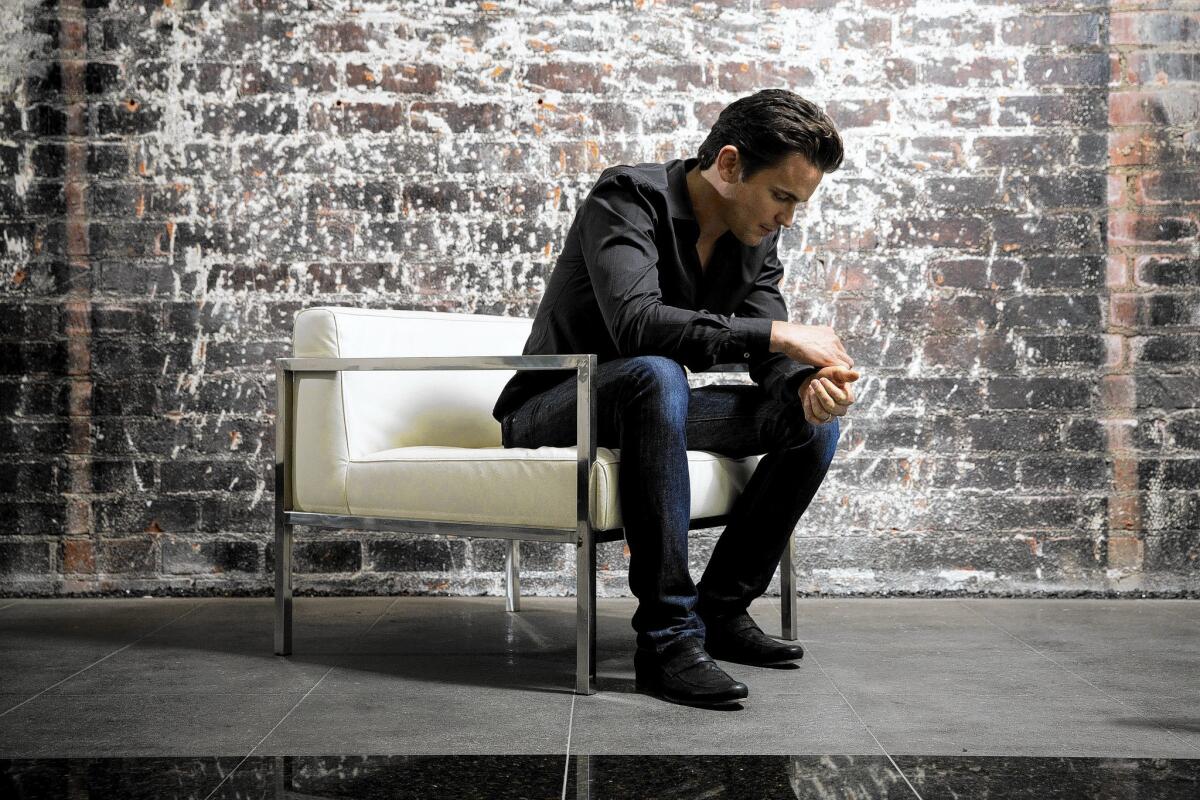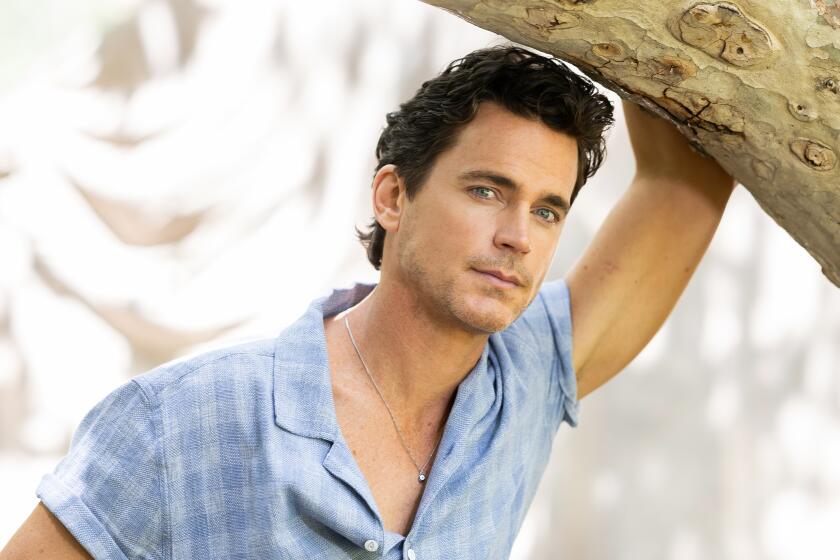Matt Bomer won’t let go of HBO ‘Normal Heart’ role — ‘he changed me’

Physical transformation is the surest way for an actor to get an audience’s attention, but the changes went much deeper for Matt Bomer for HBO’s “The Normal Heart.” Bomer says that playing the role of Felix Turner, who becomes ill during the early days of the AIDS epidemic, had a lasting effect on his life, well beyond the 40 pounds he lost for the second half of production.
“I’ve been a fan of the play for over 20 years,” Bomer says. “It was one of those pieces that made me want to become an actor in the first place.” The Ryan Murphy-directed film was written by Larry Kramer, whose play is loosely based on his own life. Mark Ruffalo also stars as Ned Weeks, Felix’s boyfriend and a writer turned activist who starts the Gay Men’s Health Crisis organization to look for the reasons behind a mysterious cancer affecting gay men in the early 1980s. Bomer recently spoke to The Envelope about why the role was so important to him and how difficult it’s been to leave Felix behind.
How did you build your onscreen chemistry with Ruffalo?
We were fortunate enough to film things mostly sequentially for the first half of the film, so we stayed in character together on set. Without sounding overly Methody about the whole thing, we just related to each other as Ned and Felix. If it was a scene where we had to be really tender with each other, we would sit together in closer proximity than actors might normally do and tell each other personal stories, so that when the cameras were rolling, we didn’t suddenly have to affect something. It was coming from a place that we had already created.
This is such an emotional role for you. Was it difficult to leave Felix behind at the end of each day?
I don’t want to let go of Felix. Usually by the time I’m done [with a role], I’m like, “OK, let’s close that chapter and move on,” but I don’t want to let go of him because I think he changed me for the better. I grew from getting to play him. What I love about their relationship is it is so symbiotic, because Felix is having trouble with his authenticity but is also incredibly available to intimacy and a real relationship. And Ned is this firebrand who’s completely authentic, and comfortable with who he is, but is terrified of intimacy. Together they help heal each other.
There was a moment when Mark and I — after we finished the wedding scene, which I think was the last thing we filmed together — just held on to each other and sobbed for a good 15 minutes. Not because of anything we had done but because we were a part of this story that was so much bigger than us, and because we knew that this was how a generation of people had to say goodbye to each other. Taking in the gravity of that moment was really overwhelming. It was just one of those things you don’t ever forget.
It’s striking how much this group of people made a lasting impact on history. How important is that activism today?
One thing I hope that the younger generation will take from watching this film is how much we owe to these people who banded together when it was not an easy thing to do. I wouldn’t be able to call Simon [Halls] my husband if it weren’t for these people.... To get to tell the story is a gift, and something I feel that I owe to them.
You’re starting the sixth and final season of “White Collar.” Are you looking ahead to what’s next?
I’m trying to put aside my sadness that this is the last season we’re going to get to work together. It’s a sad thing to think about, having to say goodbye to that. I can’t allow myself to be excited about anything until I’ve processed that moment.
Sign up for the Envelope Newsletter
More to Read
From the Oscars to the Emmys.
Get the Envelope newsletter for exclusive awards season coverage, behind-the-scenes stories from the Envelope podcast and columnist Glenn Whipp’s must-read analysis.
You may occasionally receive promotional content from the Los Angeles Times.







